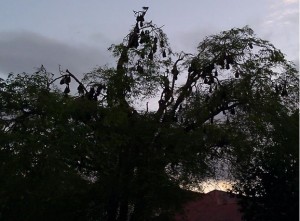John R W Stott has been one of the most influential Christian thinkers in our time. His legacy can be found in the transformed individuals, institutions, and churches through his school, the London Institute for Contemporary Christianity. One of the cornerstone of the institute is the willingness, strive, and skills to understand and relate the Word of God and the World we live in today. John Stott expounded the biblical concept in John 17 that we would have to be in the world but not be like the world. John Stott believes that it is an essential skill for every believer and coined this skill as “Double Listening”. He argues that “Double Listening” is important for us to be able to declare God’s truth effectively and to be relevant but yet live faithfully. This skill is becoming more essential as the world changes rapidly to the worse as observed in our 2007 DT.
From our finding in Makasar, the churches are battling the friction and the impulse of the flesh internally and fighting the unseen threat from the government and religious radicals externally. Majority of the churches were residing in Makasar and did not want to serve in more remote areas because of financial reasons. Most churches could gather more believers and therefore grow faster with least amount of money and efforts in large city such as Makasar. It took a lot more resources and personal sacrifices to serve 10 believers in small rural villages. Externally, the threat from the government could be felt whenever the church wanted to build new buildings or facilities. Worse, there were some laws enacted, such as flogging law, which was adopted from extreme Islamic law. These regulations were implemented even in regions with large concentration of Christians.
Tree full of bats in Sopeng – village close to Makasar
The external pressure on the churches was also exerted from the religious radicals. From our interview, we found the radicals were heavily financed and had centralized command and well planned strategy. They founded UMI (University Muslim Indonesia) that prepared the radicals intellectually. They also were more willing and aggressive to serve the people in villages. They sent religious teachers to conduct prayer schools and community projects. During the DT, we felt with less resources and unwillingness of the churches to serve and sacrifice the battle was lost. Christianity would then be swept out from Makasar and South Sulawesi.
We found that our faith was too small to see the great and wonderful works of God. We found and visited one village and heard many more villages that had strong believers and churches. It was unbelievable joy when we eventually talked to our brothers and sisters in this small village. We asked them many questions, but it was all about one thing how could they survived and thrived. We learnt that these small thriving churches had the skill of double listening. They were served with a pastor educated in the local theological schools. The pastor kept them rooted in the Bible, which pushed them to serve the need of their village. Instead of forcing their solution, they formed or joined small interest groups, such as young mothers or farmers, to listen and serve the specific needs. It was amazing to see their impact to the village and the responding trust and friendship from the community to the church.
In John 17:15-18, our Lord Jesus Christ wanted us to be sent into the world to declare who Jesus Christ really is, the Lord of all kings, the Messiah, the Redeemer, and the Deliverer. The world would reject us because they have their own kings. However, if we followed our Lord Jesus Christ examples, as this small church did, the world will believe and know who Jesus Christ is.

